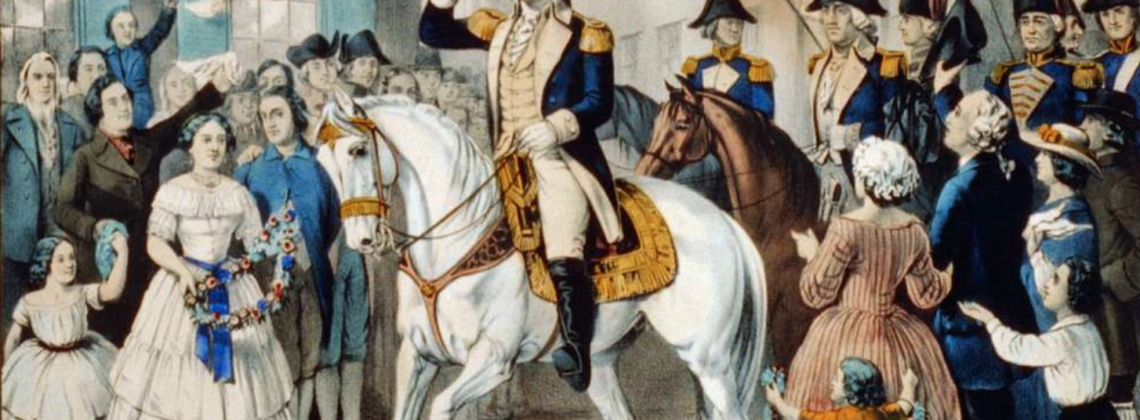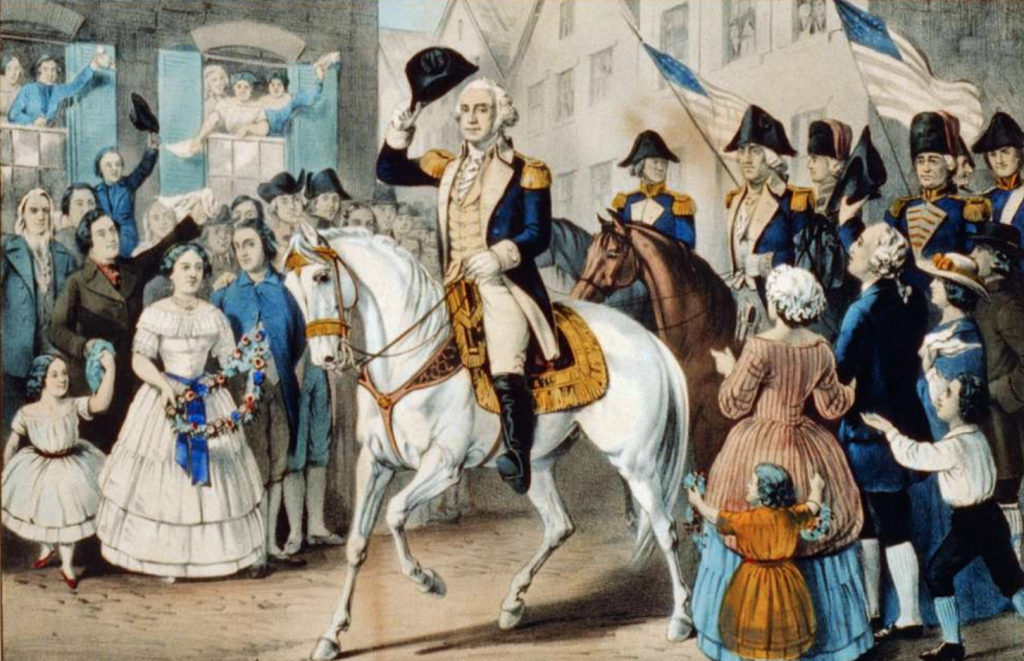

History is always changing
Earlier this week—on Columbus Day—I spent the morning with a group of K-12 history teachers from a Western Pennsylvania school district. Seemingly unaware of the ongoing controversy over the meaning of the American Revolution precipitated by the New York Times 1619 Project, the school district administrators chose the Revolution as the topic for its professional development day because, as they put it, the nature of the American founding was not as “controversial” as other potential topics in American history.
In my first lecture I offered a snapshot of the British-American colonies in 1763, the year the French and Indian War ended. My argument went something like this: Between 1607 (the founding of Jamestown, the first successful British colony in North America) and 1763 the British settlements in North America transitioned from remote, distant, underdeveloped “colonies” of the British Empire to “provinces” that were culturally, intellectually, politically, economically, and religiously integrated into the empire. The colonists were functioning efficiently within the British mercantile economy, consuming the same goods that people in London were consuming, engaging with the ideas of the British Enlightenment, committed to governments that promoted British liberty, and warmly embracing the Protestant character of the British Empire.
With the victory over the “tyrannical” and “Papist” French in the French and Indian War, patriotism was at an all-time high in the British colonies. The story of these 167 years, I argued, was not the story of how the colonies grew more and more “American” until the seeds of independence finally blossomed in 1776. Instead, it was the story of how the colonies became more and more British during this period. In fact, the individual colonies probably had more in common with London than they did with each other.
My second lecture, which covered the years between 1764 and 1776, explained how the American Revolution drew heavily upon this British identity. The colonists took time-honored British “Whig” political ideas and used them to resist Parliament’s multiple attempts to tax them. When the leaders of the American Revolution used terms like “tyranny,” “arbitrary power,” “slavery,” “liberty,” and “virtue” they were applying this Whig vocabulary to their own situation. Even the first two paragraphs of the Declaration of Independence, which reference the inalienable Creator-given rights of life, liberty, and the pursuit of happiness, were little more than a reformulation of old ideas that had reached their zenith in British political life in the wake of the Glorious Revolution of 1688.
Early American historians will recognize that my lectures were informed by what historians call “Anglicization,” a word used to describe the process by which a place or person becomes influenced by English or British culture. Indeed, Anglicization historians of the American Revolution such as John Murrin, T.H. Breen, Ned Landsman (my doctoral adviser), and Brendan McConnville have shaped my understanding of this seminal event. If my lectures in Western Pennsylvania sounded like Anglicization on steroids, it is because I wanted the teachers to think historically about the American Revolution. In other words, I wanted them to see that independence was not inevitable, the logical result of Enlightenment progress. Very few, if any, saw it coming. Nor was the revolution particularly exceptional or even radical by eighteenth-century standards.
If I had delivered these lectures a century ago I might have been accused of treason.
This is what happened to American historian David Saville Muzzey in 1921, ten years after the publication of his An American History, a popular textbook that advanced an argument very similar to what today’s historians call Anglicization. With communism on the rise in Russia, and socialism growing at a rapid rate in the United States, prompting the nation’s first Red Scare, patriotic organizations realized that school textbooks like Muzzey’s An American History were teaching children that the American Revolution was a British, rather than uniquely American, event. As historian Gary Nash describes it, “Muzzey suddenly found himself accused of writing a ‘treason text’ and contaminating young minds with anti-Americanism.” Charles Miller, a syndicated columnist for the Hearst newspapers, waged a campaign against Muzzey’s textbooks and others like it. He attacked Muzzey for suggesting that not all colonists supported the independence movement and claimed that “all [Muzzey] knows is the British history of America.”
Miller also railed on a textbook by historian Albert Bushnell Hart for claiming that before 1765 “the colonists liked to think of themselves as part of the British empire . . . [and] were proud of being Britons.” Hart was right, and Miller’s words here do a fine job of summarizing my lectures this week to the teachers in Western Pennsylvania. As Nash writes, “the colonists, living locally circumscribed lives, nurtured affection for Virginia, Pennsylvania, and New Hampshire, [but] they also cultivated cosmopolitan transatlantic ties, sending sons to England for legal and medical training, aping English fashions, and wearing with great pride the emblem ‘freeborn Englishman.’”
After Miller published The Poison-Loving Cup (1928), a book exposing these “pro-British,” “unpatriotic” historians of the American Revolution, district school superintendents who assigned these texts came under fire from parents and local patriot organizations. Several of them lost their jobs. A national debate raged over the proper way to teach American history in public schools. Does this sound familiar?
On Monday, several teachers told me how much they appreciated my efforts at challenging them to think in a different way—perhaps a more historically responsible way—about the intellectual roots of the American Revolution. But I am also fully aware of the fact that my approach to the Revolution might draw criticism from those on the academic and political left who believe that my focus on Western ideas and the dead white men who promoted them is too conservative or too patriotic.
Some of these critics will conclude that my ideas-centered interpretation of the American Revolution does not pay enough attention to identity categories as a possible interpretive framework for understanding the Revolution. Some might interpret the American Revolution as driven by class conflict. These historians will prefer to focus their attention on the mobs in the streets of colonial cities between 1765 and 1776. Others will suggest that the true founding of the United States happened in 1619 when the first slaves arrived in Virginia. Similarly, some historians might argue that the founders were motivated by racial fears stemming from British promises of freedom to enslaved men who joined their army.
I know that modern conservatives who want to celebrate the intellectual contribution of Western Civilization to American culture might use my focus on British Whig ideas to advance their political agendas. For example, the relatively new National Conservative movement wants to restore the United States to its supposed Anglo-American roots. But my goal as a history professor is not to serve political narratives. I continue to teach the Revolution from the perspective of Anglicization because I believe it best explains how the people of the colonies, steeped in British patriotism at the end of the French and Indian War, managed to declare independence from the British Empire only thirteen years later.
History is always changing because the study of the past is shaped by the events of the present. What was unpatriotic during the first Red Scare is now very patriotic in an era when the defenders of Western Civilization live in fear that Black Lives Matter, #MeToo, and democratic socialism challenge their conservative interpretation of national origins.
In the end, I might get canceled for continuing to explain the American Revolution in terms of Anglicization. But I’ll take cancellation over a treason trial every time!
John Fea is Executive Editor of Current
This is fascinating. Had no idea about how threatening the Anglicization theory once was thought to be!